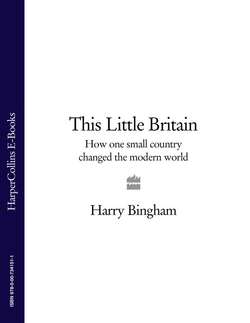Читать книгу This Little Britain: How One Small Country Changed the Modern World - Harry Bingham - Страница 24
A HANDFUL OF FEATHERS
ОглавлениеTheft is illegal. It always has been. If you nick something and get caught, you will be prosecuted under the Theft Act of 1968, which says in the very first sentence of the very first paragraph:
A person is guilty of theft if he dishonestly appropriates property belonging to another with the intention of permanently depriving the other of it.
Easy, huh? But what if you stole something in 1967, the year before the act was passed? Well, prior to the 1968 act, there was the Larceny Act of 1916. That act didn’t have one neat way to categorize theft. In fact, you don’t need to get very far into its definitions before the eyes start to goggle:
A person steals who, without the consent of the owner, fraudulently and without a claim of right made in good faith, takes and carries away anything capable of being stolen with intent, at the time of such taking, permanently to deprive the owner thereof; provided that a person may be guilty of stealing any such thing notwithstanding that he has lawful possession thereof, if, being a bailee or part owner thereof, he fraudulently converts the same to his own use or the use of any person other than the owner:
The expression ‘takes’ includes obtaining the possession (a) by any trick; (b) by intimidation; (c) under a mistake on the part of the owner with knowledge on the part of the taker that possession has been so obtained; (d) by finding, where at the time of the finding the finder believes that the owner can be discovered by taking reasonable steps; The expression ‘carries away’ includes any removal of anything from the place which it occupies, but in the case of a thing attached, only if it has been completely detached;…
All this just seems weirdly complex—‘completely detached’ from reality, indeed—and so it was. The contorted definitions arose, however, because the 1916 act was trying to bring order not simply to previous acts of parliament, but to the entire area covered by the common law. And what was the common law? Quite simply this: it was the laws of the land as judges had found and interpreted them. Edwardian judges looked at the precedents laid down by Victorian judges, who in turn had looked at the precedents set by Georgian judges, who in turn had looked at the precedents set by their predecessors, who in their turn…
Although the unbroken chain of precedent does not run as far back as the courts of the twelfth century and Henry II, the mode of deciding cases has always looked to the past. Questions of fact were decided by juries or by ordeal; questions of law always relied on a kind of collective memory of the unwritten law, the laws and customs of the land. In effect, those judges of Henry’s court determined that theft was illegal because theft had been illegal for as long as anyone could remember. As with theft, so with most other offences. It wouldn’t even be true to say that the origins of English law are lost in the mists of time. That implies that if we only knew more, we’d be able to locate a source. And we wouldn’t. No such unitary source has ever existed. Little wonder that by the time of the 1916 Larceny Act, the law of theft had become a tangled jungle almost too dense to pierce.
Because we’re used to it, the oddness of all this is easy to miss. A modern parliament is a huge law-passing machine, and the cases adjudicated by today’s courts are constantly bumping up against the rules laid down by some act of parliament. Yet this modern rule-making is a very recent phenomenon. When did parliament first outlaw theft in its most general form? In 1300?; 1500?; some time in the seventeenth century? Not a bit of it. The first really general attempt to outlaw theft was in that Theft Act of 1968—everything else had just been an attempt to get old common law practices and the mish-mash of parliamentary statutes into some sort of order.
Even now, there are giant areas of law where common, not statute, law rules entirely. I’m on the point of selling the house I’m now writing in. When my buyer and I sign the contract of sale, that contract will be binding on us both, and enforceable through the courts. That does not mean, however, that I’m protected by some act of parliament. I’m not. There simply is no basic law of contract on the statute books. It doesn’t exist, and most likely never will. My fundamental protection is that when Henry’s royal judges came to systematize the law, they thought that contracts should be honoured and made sure that they were.
No one would ever choose to build from scratch a legal system that looks like ours, any more than you’d choose to build a skyscraper by starting with a henhouse and then just improvising. Britain, however, is a country where very few of our most important institutions have been built from scratch. They tend to be ramshackle affairs: cobbled together, patched, altered, repaired, made to last another few years. At the heart of most institutional skyscrapers in Britain—the law, parliament, the monarchy—you’ll find splintering timbers and a handful of feathers. No one in their right minds would set out to do things like this. But—as long as you’re British—it’s an approach that works.
